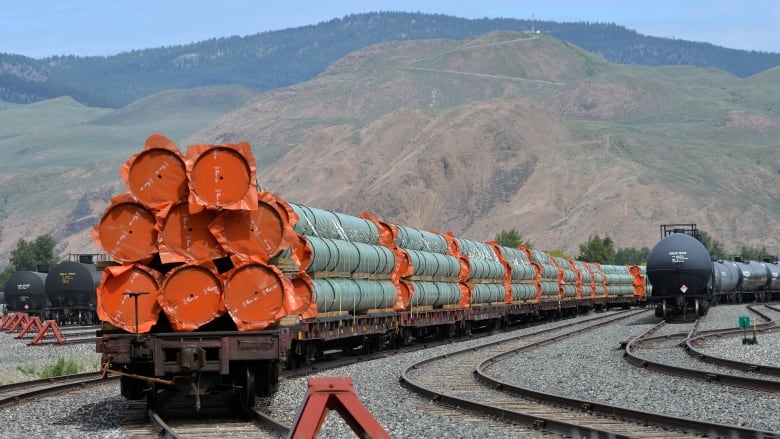Keep NEB and focus more on economy in Bill C-69, says Calgary-based think tank
Canada West Foundation worries legal precedent will be tossed out with NEB, but not all agree

ACalgary-based think tank is calling for changes to the federal government's controversial Bill C-69, meant to revamp and streamline the country's system for approving industrial projects.
In Alberta, the bill has raised the ire of the oil and gas industry, which says it will further impact the sector at a time when low prices and pipeline capacity are undercutting the bottom line.
The biggest concerns from industry are around which projects would be affected and whether it would further impede infrastructure like new pipelines in Canada.
Those concerns have been echoed by the Alberta government, and opponents to the proposed legislation have held boisterous protests in the province.
"We think there's a lot of improvements introduced in this bill but in order for it to be passed, it needs substantial amendment," said Marla Orenstein, who co-authored a report on C-69 for the Canada West Foundation.
"It needs to be done in a way that is robust and fair and that won't discourage future investment in Canada's growth. And the most important of these changes is to carve the NEB out of it."
Judicial certainty
The foundation doesn't want to see the National Energy Board replaced with a new federal energy regulator, saying the move would kill some of the judicial certainty achieved over the past few years of contested projects.
It wants to see the regulator reformed outside of Bill C-69.
"If we throw that out, all those court challenges, everything that's come from Trans Mountain and Northern Gateway, it's irreversible," saidOrenstein."And it means we start over again at Square 1 with years more of court challenges for future projects."
Joshua Ginsberg, the director of legislative affairs for Ecojustice an environmental law organization says the NEB will be renamed, not removed, and will revert to its previous function as a regulator and not the body responsible for approving projects.
Being responsible for approvals is somethinghe calls a failed experiment, which started in 2012 and which has led to fights in the courts.
He says Bill C-69 won't change previous court decisions.
"Now if litigation happens, those other precedents will still be relevant because fundamentally they speak to the duty of the decision-maker, meaning the minister or cabinet, to only act on a report that's legally compliant and that compliance has just been clarified in C-69," he said.
Other concerns
In addition to the call for a rethink on replacing the NEB, the foundation identifies what it says are four additional areas of concern in the current draft of the bill, which has passed third reading in the House and is now in the hands of the Senate.
The areas of concern for Canada West are:
- Putting public safety at risk by removing NEB and the Canadian Nuclear Safety Commission from the approval process.
- Threat of political discretion in decision-making.
- Lack of emphasis on economic factors and "economic reconcilliation."
- Need for more efficiency on time frames.
Some of what the foundation wants include: decisions made by three ministers rather than just the environment minister;a new impact assessment agency to be independent;clarification onlanguage in the bill that could lead to delays and confusion;more emphasis on economic benefits; and a reduction in the ability of groups to block projects through court delays.
Environmental rules
Orensteinsays the strength of the bill lies in improved environmental protections, but that it fails to provide transparency to the process and it doesn't have enough focus on economic benefits.
The organization wants clear policy on climate change and Indigenous rights spelled out by the government outside of this proposed legislation to help guide decisions within any system created by C-69.
"It's good at looking at the local effects on local communities in terms of the environment health and social considerations, but it doesn't take a look at how the project fits into a national need for infrastructure and national economic growth," said Orenstein.
She says there's nopoint in Canada having a "robust environmental review" if no projects are moving through the process.
Certainty
Ginsberg from Ecojustice doesn't see why the oil and gas sector, which has called for more certainty for projects, would oppose the bill as currently drafted.
"In the past, we've had these issues come way late in the process and all of a suddenthe proponents [didn't realize] that there was an endangered species issue here and now it ends up in litigation because the decision has been made," he said.
"So let's deal with these things at the outset. Let's really make it a planning process. That provides certainty and that's what I would imagine industry wants."
- Read more articles byCBC Calgary, like us onFacebookfor updates and subscribe to ourCBC Calgary newsletterfor the day's news at a glance.












_(720p).jpg)


 OFFICIAL HD MUSIC VIDEO.jpg)
.jpg)



























































































